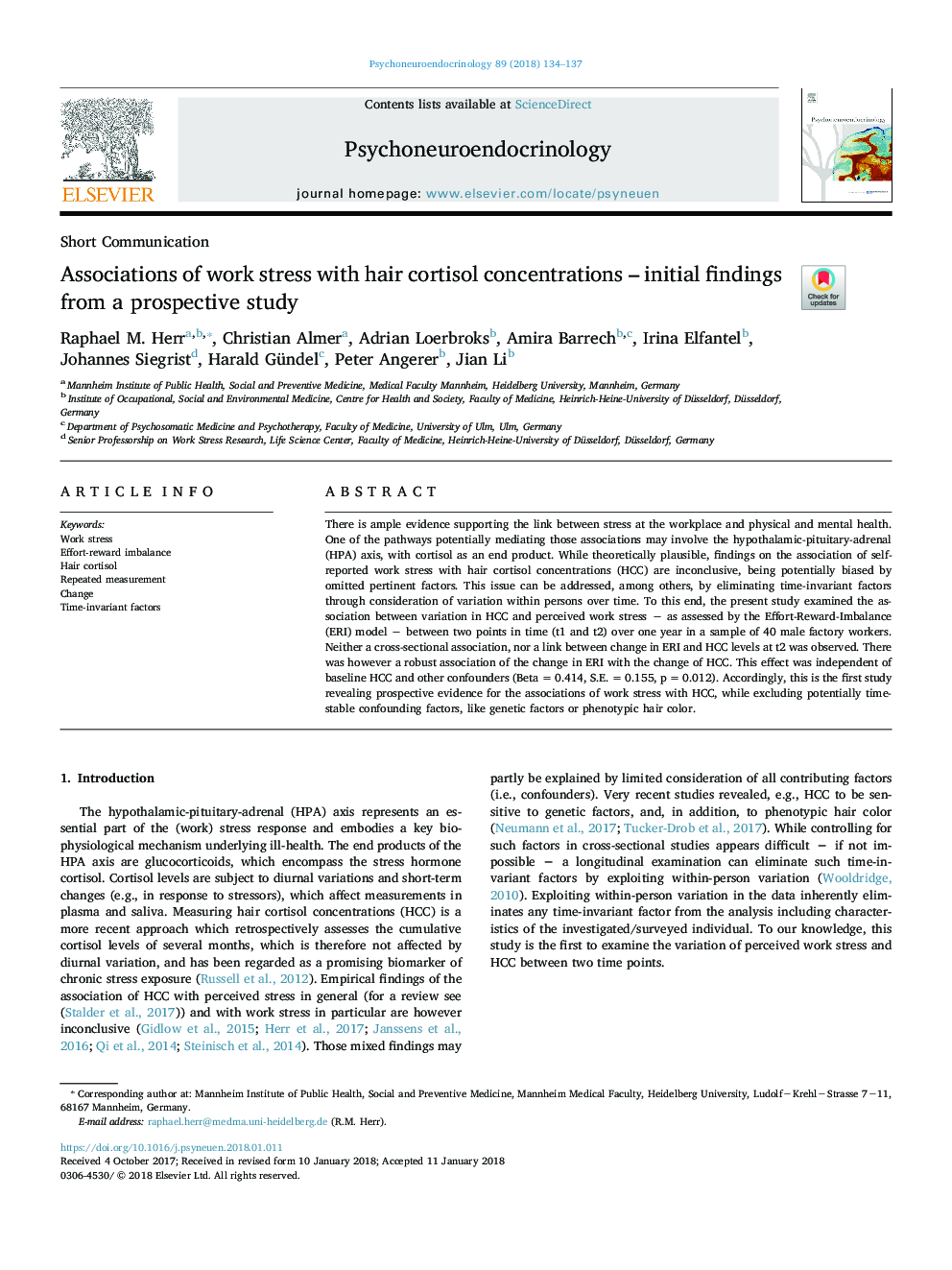| Article ID | Journal | Published Year | Pages | File Type |
|---|---|---|---|---|
| 6817750 | Psychoneuroendocrinology | 2018 | 4 Pages |
Abstract
There is ample evidence supporting the link between stress at the workplace and physical and mental health. One of the pathways potentially mediating those associations may involve the hypothalamic-pituitary-adrenal (HPA) axis, with cortisol as an end product. While theoretically plausible, findings on the association of self-reported work stress with hair cortisol concentrations (HCC) are inconclusive, being potentially biased by omitted pertinent factors. This issue can be addressed, among others, by eliminating time-invariant factors through consideration of variation within persons over time. To this end, the present study examined the association between variation in HCC and perceived work stress â as assessed by the Effort-Reward-Imbalance (ERI) model â between two points in time (t1 and t2) over one year in a sample of 40 male factory workers. Neither a cross-sectional association, nor a link between change in ERI and HCC levels at t2 was observed. There was however a robust association of the change in ERI with the change of HCC. This effect was independent of baseline HCC and other confounders (Betaâ¯=â¯0.414, S.E.â¯=â¯0.155, pâ¯=â¯0.012). Accordingly, this is the first study revealing prospective evidence for the associations of work stress with HCC, while excluding potentially time-stable confounding factors, like genetic factors or phenotypic hair color.
Related Topics
Life Sciences
Biochemistry, Genetics and Molecular Biology
Endocrinology
Authors
Raphael M. Herr, Christian Almer, Adrian Loerbroks, Amira Barrech, Irina Elfantel, Johannes Siegrist, Harald Gündel, Peter Angerer, Jian Li,
